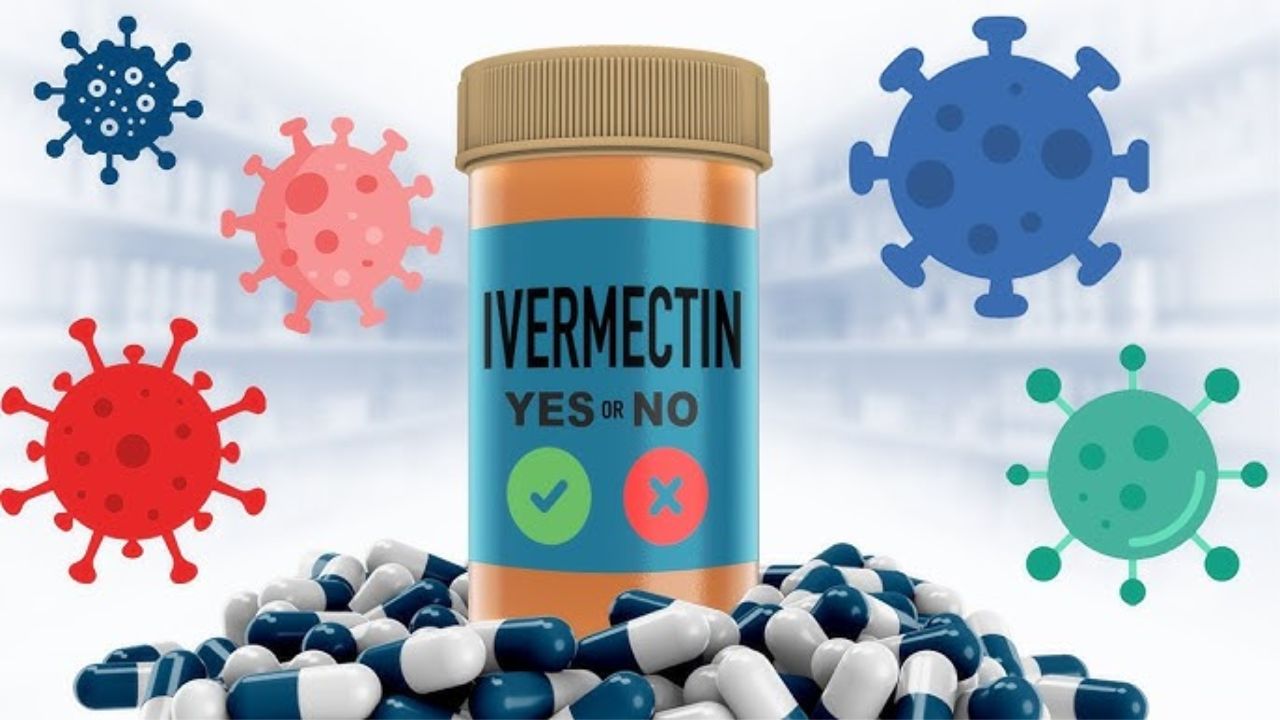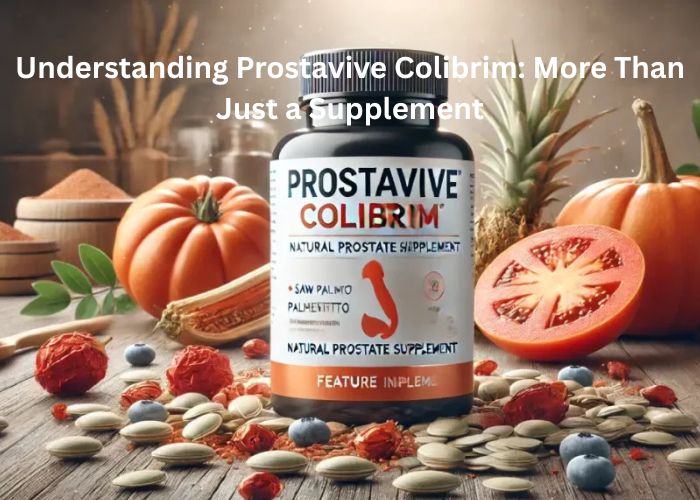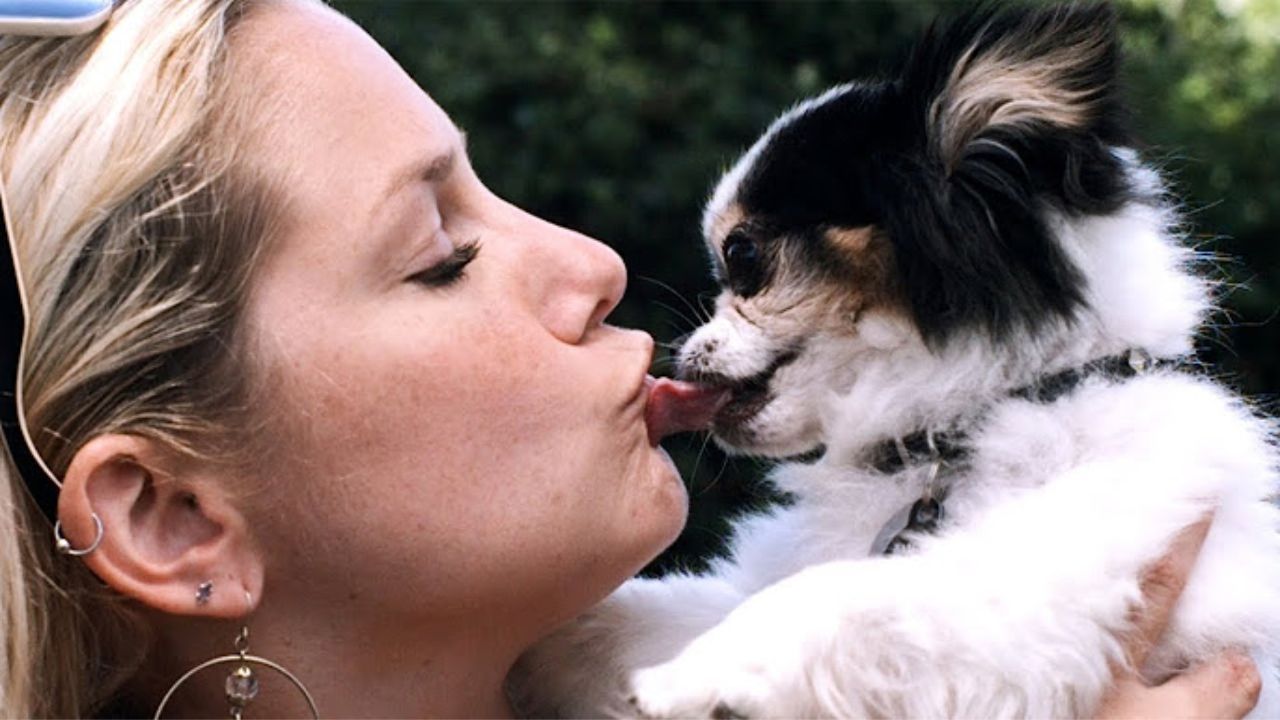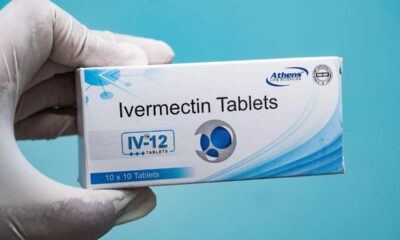Health
Ivermectin for Humans: What Science Says About Its Effectiveness

Introduction to Ivermectin for Humans
Ivermectin, first discovered in the late 1970s, was initially used to combat parasitic infections in animals. Soon after, its potential in treating human diseases such as onchocerciasis (river blindness) and lymphatic filariasis was recognized, earning its discoverers a Nobel Prize in 2015. While its efficacy in these parasitic diseases is well-documented, the drug gained newfound fame (and controversy) during the COVID-19 pandemic.
But beyond the headlines, there lies a wealth of scientific literature exploring ivermectin’s role in human health. Its established success in certain applications is undeniable, but what does current science reveal about its broader use?
How Does Ivermectin Work in the Human Body?
It belongs to a class of drugs known as avermectins. It works by binding to specific proteins in parasites, causing paralysis and eventual death of the organism. This mechanism of action is highly effective against a variety of parasitic worms and some ectoparasites, such as lice and scabies.
In humans, ivermectin has been shown to:
- Inhibit parasite reproduction.
- Block the transmission of certain infections.
- Exhibit potential antiviral and anti-inflammatory properties in laboratory studies.
While these effects make ivermectin a powerful tool in specific medical cases, its broad application remains a topic of ongoing research.
Proven Uses of Ivermectin for Humans
Treatment of Parasitic Diseases
It has long been a gold-standard treatment for diseases caused by parasitic worms, such as:
- Onchocerciasis (River Blindness): Studies show that ivermectin reduces microfilariae, the larval stage of the parasite, preventing blindness and other complications.
- Lymphatic Filariasis: The drug interrupts the lifecycle of the parasite, minimizing symptoms and transmission.
- Strongyloidiasis and Other Soil-Transmitted Helminths: Ivermectin is highly effective in clearing these infections from the human body.
Scabies and Lice
Topical or oral ivermectin is frequently prescribed for scabies and lice infestations, especially in cases where other treatments have failed. Clinical trials report success rates as high as 95% when used correctly.
Emerging Applications of Ivermectin in Human Medicine
Antiviral Potential
During the COVID-19 pandemic, ivermectin became a subject of heated debate. Laboratory studies suggested that it might inhibit the replication of certain viruses, including SARS-CoV-2, under specific conditions. However, large-scale clinical trials have yielded mixed results.
While some small studies reported potential benefits, major health organizations, including the FDA and WHO, concluded that there is insufficient evidence to support ivermectin’s use as a treatment for COVID-19 outside of clinical trials.
Anti-Inflammatory Properties
Preliminary research has suggested that ivermectin may have anti-inflammatory effects, potentially useful in treating conditions like rosacea or other inflammatory skin diseases. However, more robust clinical trials are needed to confirm these benefits.
What Do Experts Say About Ivermectin’s Effectiveness?
The medical community largely agrees that ivermectin is a game-changer for parasitic diseases, but opinions diverge when it comes to broader applications.
Support for Ivermectin:
- Experts highlight its safety record when used as prescribed.
- Studies emphasize its life-saving impact in regions plagued by parasitic diseases.
Skepticism About Off-Label Use:
- Researchers caution against using ivermectin for unapproved indications without solid clinical evidence.
- Overuse can lead to drug resistance, reducing its effectiveness in treating critical diseases.
Challenges and Controversies Surrounding Ivermectin
Ivermectin’s rise to prominence during the COVID-19 pandemic brought both attention and controversy.
Concerns About Misuse
- Self-Medication: Reports emerged of individuals using veterinary formulations which are not suitable for human consumption and pose serious health risks.
- Limited Evidence: Many studies cited in support of off-label uses were later criticized for methodological flaws or small sample sizes.
Global Accessibility
Despite its affordability, That remains inaccessible to many populations in low-income regions, where parasitic diseases are endemic. Efforts to expand access could have a profound impact on global health.
Ivermectin for Humans: Safety and Side Effects
When used as prescribed, It is generally considered safe. Common side effects include:
- Mild gastrointestinal discomfort (e.g., nausea, diarrhea).
- Dizziness or fatigue.
Severe reactions are rare but can include allergic responses or neurological effects in individuals with certain conditions, such as a heavy parasite burden.
The Future of Ivermectin in Human Health
The scientific community continues to explore ivermectin’s full potential. Promising areas of research include:
- Cancer Treatment: Preliminary studies indicate that may have anticancer properties by targeting specific cellular pathways.
- Vector Control: Using ivermectin in mass drug administration programs could reduce the transmission of diseases like malaria by targeting mosquitoes that feed on treated individuals.
As research advances, it is crucial to strike a balance between optimism for new applications and caution against misuse.
Conclusion
It is a remarkable drug with proven effectiveness against many parasitic diseases. While its safety and efficacy for these uses are well-established, its broader applications remain a subject of scientific inquiry. Misuse and misinformation have clouded its reputation, emphasizing the importance of evidence-based medicine. With continued research, ivermectin may unlock new possibilities for human health, but for now, its use should remain grounded in science and guided by healthcare professionals.
FAQs
What is ivermectin used for in humans?
It is primarily used to treat parasitic infections such as onchocerciasis, lymphatic filariasis, strongyloidiasis, and scabies.
Is ivermectin safe for human use?
Yes, when prescribed by a healthcare provider and used correctly, It is safe. However, misuse can lead to serious side effects.
Can ivermectin treat COVID-19?
Current evidence does not support ivermectin as an effective treatment for COVID-19. Major health organizations recommend against its use outside of clinical trials.
What are the side effects of ivermectin?
Common side effects include nausea, dizziness, and fatigue. Severe reactions are rare but possible.
Why is ivermectin controversial?
Ivermectin became controversial due to its off-label promotion during the COVID-19 pandemic, despite limited supporting evidence.
Are there any new uses for ivermectin being researched?
Yes, ongoing research is investigating its potential in antiviral therapies, cancer treatment, and inflammatory conditions.

Health
Bioma Probiotics 2025: The Supplement Taking Over Gut Health Routines”

It started like any other day—tired, bloated, and foggy-headed. Jenna, a 34-year-old marketing executive, had battled digestive issues for years. Even with a healthy diet and regular exercise, something always felt off.
That was until she stumbled upon a growing buzz online: Bioma Probiotics. After a few weeks of use, Jenna began noticing real changes—her digestion improved, her energy levels increased, and even her mood lifted.
She wasn’t alone.
Across the globe, thousands of people are making the switch to Bioma Probiotics in 2025. But what is it about this supplement that’s drawing such a loyal following? Is it simply the latest wellness fad, or is there real science backing the buzz?
In this article, we’ll explore why Bioma Probiotics are gaining so much traction in 2025, what sets them apart, and how they may be transforming gut health for good.
What Are Bioma Probiotics?
Bioma Probiotics is a specialized supplement designed to support gut health by promoting a healthy microbiome balance. It combines carefully selected strains of good bacteria with prebiotics and nutrients that help those bacteria thrive in your digestive tract.
Key Features of Bioma Probiotics
-
Triple-action formula: Includes prebiotics, probiotics, and postbiotics for complete gut support.
-
Custom-formulated strains: Designed to balance gut bacteria for improved digestion, mood, and energy.
-
Clinically studied ingredients: Backed by research and third-party tested for purity and potency.
-
Delayed-release capsules: Shield probiotics from stomach acid so they can reach the intestines safely and effectively.
Why Are People Switching to Bioma Probiotics in 2025?
The shift toward Bioma Probiotics isn’t accidental—it reflects changing priorities in health, science, and lifestyle.
1. Increased Focus on Gut Health
In 2025, gut health is no longer just a niche wellness topic—it’s mainstream. Scientific studies continue to confirm that the gut plays a key role in:
-
Digestion and nutrient absorption
-
Immune system regulation
-
Mental health (via the gut-brain axis)
-
Weight management and metabolism
As awareness grows, so does the demand for high-quality, effective probiotic supplements—Bioma leads the charge.
2. Customized Formulation for Modern Lifestyles
Unlike generic probiotic brands, Bioma Probiotics is formulated with modern health challenges in mind. From poor diets to stress, overuse of antibiotics, and environmental toxins, Bioma’s formula is tailored to help users:
-
Reduce bloating and gas
-
Improve bowel regularity
-
Strengthen immune function
-
Enhance mental clarity and mood
3. Positive User Experiences and Testimonials
Social proof has played a major role in Bioma’s rise. Users across platforms like Reddit, TikTok, and wellness blogs report:
-
Noticeable improvements in digestion within weeks
-
Reduced sugar cravings and appetite control
-
Better energy and mental sharpness throughout the day
This kind of real-world validation gives Bioma an edge in a crowded supplement market.
What Sets Bioma Apart from Other Probiotics?
Clinically Proven Strains
Bioma doesn’t rely on filler bacteria. It uses well-researched strains like Lactobacillus plantarum and Bifidobacterium longum—proven to help with gut repair and inflammation reduction.
Prebiotics + Postbiotics
Most probiotics stop at bacteria. Bioma adds prebiotics (fuel for the good bacteria) and postbiotics (beneficial compounds produced by probiotics) for a complete gut ecosystem solution.
Adaptogenic Support
Some Bioma formulas include adaptogens like ashwagandha and rhodiola—herbs that support stress resilience, making it more than just a digestive supplement.
Bioma Probiotics: Who Can Benefit?
Bioma is suitable for anyone, but especially helpful for:
-
People with digestive issues (bloating, constipation, IBS)
-
Those recovering from antibiotic use
-
Individuals with skin concerns (eczema, acne)
-
People seeking natural mood support
-
Health-conscious individuals and fitness lovers aiming to boost their metabolism.
FAQs
Q1: How long does it take for Bioma Probiotics to work?
Many users notice positive changes—like better digestion and increased energy—within just 2 to 4 weeks.
Q2: Are there any side effects?
Some users experience mild gas or bloating in the first few days as their gut microbiome adjusts, but this typically subsides quickly.
Q3: Can I take Bioma Probiotics with other supplements?
Yes, Bioma is generally safe to take alongside other vitamins or medications, but it’s always best to consult with a healthcare provider.
Q4: Is Bioma suitable for vegans?
Yes, Bioma uses plant-based capsules and contains no animal products.
Conclusion
In 2025, the demand for smarter, science-backed wellness solutions is higher than ever—and Bioma Probiotics has emerged as a trusted leader in the gut health space. By combining powerful strains, innovative formulation, and real-world results, it offers more than temporary relief—it helps restore long-term balance from the inside out.
Whether you’re struggling with digestion, fatigue, or just want to improve your overall well-being, it’s no surprise why more people are making the switch to Bioma Probiotics this year.
READ ALSO:
10 Empowering Ways for Setting Healthy Boundaries in Recovery
Health
10 Empowering Ways for Setting Healthy Boundaries in Recovery

Recovery isn’t just about quitting a substance or behavior — it’s about reclaiming control over your life. Learning to set healthy boundaries is a crucial part of the recovery journey. These boundaries aren’t barriers that shut others out—they’re pathways to stronger relationships, emotional well-being, and a more balanced inner life. In recovery, boundaries can help prevent relapse, rebuild self-esteem, and restore dignity after a period of chaos or codependency.
What Does It Really Mean to Set Boundaries in Recovery?
Establishing boundaries in recovery involves identifying and communicating what you will and won’t allow in your life. It involves recognizing your limits, communicating them clearly, and taking action when they are crossed. It’s about prioritizing your healing above people-pleasing or unhealthy attachments.
This includes everything from saying no to late-night invitations that threaten your sobriety to limiting conversations with emotionally manipulative people.
The Role of Boundaries in Emotional Sobriety
While physical sobriety is often the initial goal, emotional sobriety is where deep transformation happens. Emotional sobriety requires:
-
Clarity in communication
-
Ability to self-regulate without external validation
-
The confidence to walk away from toxicity
Boundaries act as anchors in this process, keeping you grounded when emotional triggers arise.
Types of Boundaries in Recovery
Understanding the different types of boundaries can help you identify where change is needed:
Physical Boundaries
Protecting your personal space and body.
Emotional Boundaries
Not absorbing others’ feelings or guilt-tripping behavior.
Mental Boundaries
Maintaining your own opinions and beliefs without being influenced by manipulation.
Time Boundaries
Managing your schedule and commitments without burnout or over-obligation.
Recognizing Unhealthy Patterns
Sometimes, unhealthy boundaries are deeply ingrained:
-
Always saying “yes” to avoid conflict
-
Feeling responsible for others’ emotions
-
Allowing others to take advantage of you just to avoid feeling lonely.
Recovery is your chance to rewire those behaviors and adopt healthier, self-respecting habits.
Why Boundary Setting Can Feel Hard in Recovery
Many in recovery struggle with guilt, shame, and fear of rejection. These emotions make it harder to set and enforce limits. Some grew up in environments where boundaries weren’t modeled or respected. Understanding this context is essential in developing patience and compassion for yourself while you learn.
Boundaries as a Relapse Prevention Tool
Without boundaries, you may unknowingly expose yourself to people or environments that put your sobriety at risk. For example:
-
Spending time with people who still use
-
Saying yes to events that include alcohol
-
Overworking to the point of exhaustion
Healthy boundaries create a buffer zone that protects your recovery journey.
Examples of Healthy Boundaries in Recovery
-
“I’m not comfortable discussing my past with someone I don’t trust.”
-
“I have to remove myself from environments where substances are being used.”
-
“My phone will be off after 10 PM so I can prioritize sleep.”
These statements reflect power, clarity, and self-awareness.
How to Communicate Boundaries Without Guilt
Use “I” statements:
-
“I feel overwhelmed when I’m asked to do too much.”
-
“I need time alone to recharge.”
Avoid:
-
Overexplaining
-
Apologizing for taking care of yourself
-
Being aggressive or passive-aggressive
Family and Friends: Loving Without Losing Yourself
It’s common to rebuild relationships in recovery. But without boundaries, you may fall into old codependent patterns. Be honest about your limits, even with loved ones. You’re not responsible for managing others’ reactions — only your actions.
Letting Go of Toxic Connections
Not everyone belongs in your recovery chapter. Boundaries may mean limiting or ending contact with people who:
-
Don’t respect your sobriety
-
Guilt you for changing
-
Trigger trauma or negative coping patterns
It’s painful, but it’s often necessary.
Setting Boundaries in Peer Support and 12-Step Groups
Even in recovery spaces, boundaries are vital. Whether it’s:
-
Not giving advice when not asked
-
Avoiding trauma-dumping in early friendship
-
Respecting confidentiality
Boundaries promote safety and mutual respect.
Therapy: Your Ally in Boundary Work
Therapists can help:
-
Identify your personal values
-
Role-play difficult conversations
-
Heal trauma that impairs boundary-setting
Consider therapy a sacred space to practice saying “no” and meaning it.
Journaling to Define Your Limits
Try prompts like:
-
“Where do I feel drained in my life?”
-
“What should I invite more of into my life — and what should I limit or let go of?”
-
“When did I last feel disrespected?”
These entries guide your boundary blueprint.
Workplace Boundaries in Recovery
You don’t owe anyone your story at work. Set limits on:
-
Hours worked
-
Gossip engagement
-
Being “always available”
A healthier work life supports a healthier recovery.
Digital Boundaries: Mindfully Using Social Media
Avoid content that:
-
Glorifies substance use
-
Triggers comparison or shame
-
Distracts you from healing
Follow accounts that uplift and support sobriety.
What to Do When People Push Back
Not everyone will applaud your growth. If someone challenges your boundary:
-
Stay calm
-
Reaffirm your need
-
Walk away if needed
Your peace is worth protecting.
The Link Between Boundaries and Self-Worth
Setting boundaries is an act of self-love. It communicates:
-
“I matter.”
-
“My needs are valid.”
-
“I deserve respect.”
As your confidence grows, so does your ability to protect your recovery.
FAQs About Setting Healthy Boundaries in Recovery
Why are boundaries important in recovery?
They protect your mental and emotional well-being, helping prevent relapse and rebuild trust.
Is it selfish to set boundaries?
No. Boundaries are about mutual respect, not selfishness.
How do I start setting boundaries when it feels awkward?
Start small, practice with safe people, and use clear “I” statements.
How should I respond if someone reacts angrily to my boundary?
Their reaction is not your responsibility. Stay firm and respectful.
Can boundaries change over time?
Absolutely. As your healing deepens, your boundaries can evolve too.
Conclusion: Healthy Boundaries = Lasting Recovery
Setting healthy boundaries in recovery is not just a skill — it’s a form of self-protection and personal growth. Boundaries teach the world how to treat you and remind you of your worth. With time and practice, boundaries become instinctive, transforming confusion into clarity and vulnerability into resilience.
READ ALSO:
Health
Prostavive Colibrim: The Natural Breakthrough Men Didn’t Know They Needed

A New Era in Men’s Wellness
In an age where men’s health is often overlooked or simplified to quick fixes, Prostavive Colibrim is rewriting the narrative. This all-natural supplement is gaining traction not because of flashy marketing, but because it genuinely works for the people using it. More than just a prostate health solution, it’s becoming a cornerstone for those seeking balance, clarity, and vitality in every facet of life.
So, what sets it apart? It’s the synergy of science and nature—and a growing community of users who now feel better, stronger, and more emotionally grounded.
Understanding Prostavive Colibrim: More Than Just a Supplement
At its core, Prostavive Colibrim was formulated to support prostate function, a concern that becomes increasingly critical for men as they age. However, its effects extend well beyond the prostate. With a thoughtful blend of time-tested herbs and clinically studied ingredients, it’s helping users unlock higher energy levels, mental sharpness, and emotional stability.
Let’s break it down.
The Key Benefits of Prostavive Colibrim
Supports Prostate Health
Ingredients like saw palmetto, beta-sitosterol, and pygeum africanum are widely known for promoting healthy prostate size and relieving urinary discomfort—making late-night bathroom trips a thing of the past.
Enhances Energy and Vitality
Users often report improved stamina and a noticeable boost in daily energy levels, enabling a more active and fulfilling lifestyle.
Promotes Mental Clarity
The supplement contains antioxidants that help reduce oxidative stress, a major contributor to mental fatigue and brain fog.
Encourages Emotional Balance
Chronic inflammation and hormonal imbalance often go hand-in-hand with mood swings. Prostavive Colibrim’s natural adaptogens help stabilize mood and lower stress levels.
The Natural Ingredients Behind the Power
| Ingredient | Function in the Formula |
|---|---|
| Saw Palmetto | Supports prostate size and urinary tract health |
| Beta-Sitosterol | Reduces inflammation and supports hormone balance |
| Pygeum Africanum | Eases bladder discomfort and improves urine flow |
| Zinc & Selenium | Essential minerals for prostate and immune function |
| Lycopene | A powerful antioxidant shown to benefit prostate tissue |
| Plant Sterols | Assist in cholesterol and hormone regulation |
This potent combination of ingredients is carefully calibrated to work in harmony, delivering maximum results without synthetic fillers or harmful chemicals.
User Feedback: Real Men, Real Changes
Unlike many supplements with generic promises, Prostavive Colibrim is backed by real-world results:
-
David, 63, says: “I was skeptical at first. But within a month, I stopped waking up three times a night. My energy is back, and my wife noticed too.”
-
Eric, 50, shares: “What surprised me the most wasn’t just the physical improvements—it was how calm and clear-headed I felt.”
-
Mike, 58, adds: “It’s like someone took the fog off my brain. I’m sleeping better, thinking sharper, and I’m more emotionally balanced than I’ve felt in years.”
How Prostavive Colibrim Stacks Up Against the Competition
Let’s be honest. The supplement world is crowded. So how does Prostavive Colibrim hold its ground?
| Feature | Prostavive Colibrim | Other Supplements |
|---|---|---|
| 100% Natural Ingredients | ✅ | ❌ Often includes fillers |
| Clinically-Backed Components | ✅ | ❌ Limited science |
| Multi-Dimensional Benefits | ✅ Physical, Mental, Emotional | ❌ Focused only on prostate |
| Transparent Labeling | ✅ | ❌ Hidden proprietary blends |
| User Community & Support | ✅ | ❌ Rarely available |
Clearly, Prostavive Colibrim isn’t just another capsule—it’s a thoughtfully designed wellness solution that respects both your time and your health.
How to Take Prostavive Colibrim
Simplicity is key. Most users take two capsules daily, preferably with a meal. Consistency is crucial for maximum effect—results are typically noticed after 3–4 weeks of regular use.
Expert Tip: Combining Prostavive Colibrim with regular light exercise and a nutritious diet can significantly enhance its effectiveness.
Is It Safe? Here’s What You Should Know
Formulated with zero artificial additives, Prostavive Colibrim is manufactured in GMP-certified facilities and adheres to strict quality control standards. While no supplement is a miracle cure, its ingredient transparency and safety profile give it an edge in the world of wellness.
However, as with any supplement, those with medical conditions or who are taking medication should consult a healthcare provider before use.
Why Men Are Making the Switch to Prostavive Colibrim
Men are tired of quick fixes and one-dimensional solutions. They want something that respects the complexity of their health needs. From easing urinary discomfort to boosting confidence, Prostavive Colibrim meets men where they are—and helps them rise higher.i
It’s more than just a prostate pill. It’s about regaining control, energy, and a sense of calm in a world that rarely slows down.
Conclusion:
If you’re seeking a supplement that goes beyond surface-level benefits, Prostavive Colibrim stands out as a holistic solution. With its all-natural formula, science-backed ingredients, and glowing user testimonials, it offers a promising path to enhanced prostate health, mental sharpness, and emotional well-being.
This isn’t about treating symptoms—it’s about transforming lives. And that makes Prostavive Colibrim not just a supplement—but a smart, sustainable investment in your long-term wellness.
FAQs
Is Prostavive Colibrim only for prostate health?
No, it also supports mental clarity, emotional wellness, and general vitality.
How soon can I expect results?
Most users see changes within 3–4 weeks, with more significant improvements after consistent use for 2–3 months.
Are there any side effects?
The formula is natural and well-tolerated. Still, consult your doctor if you have health concerns or take medications.
Is it safe for long-term use?
Yes, it’s designed for daily support and ongoing use.
Can women use Prostavive Colibrim?
It’s formulated specifically for male physiology, so it’s not recommended for women.
READ ALSO:
Diabetes Mellitus: The Silent Epidemic Affecting Millions Worldwide
-

 More6 months ago
More6 months agoThe Rise of Lillienu: Transforming Technology and Creativity
-

 Fashion6 months ago
Fashion6 months agoUnveiling the Secrets of Ceylan Eye Cream Reviews
-

 More6 months ago
More6 months agoThe Rise of Artofzio: Transforming Creativity in the Digital Era
-

 More6 months ago
More6 months agoSwindle Trilogy Website: A Must-Visit Hub for Book Lovers
-

 More6 months ago
More6 months agoInfluencersginewuld: Revolutionizing the Influencer Marketing Landscape
-

 More6 months ago
More6 months agoCeylan Eye Cream Reviews: Is It Worth the Hype?
-

 Business6 months ago
Business6 months agoIvermectin: The Medication That Changed Global Health
-

 News5 months ago
News5 months agoThe Shocking Details of the Scott Levin 2011 Truck Accident